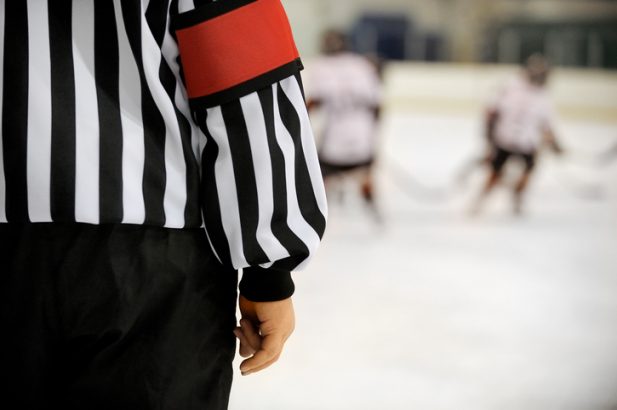Liability and Lawsuits in Professional Sports

Can a person who is seriously injured while participating in a sporting event sue for compensation? The answer to this question comes down to whether the incident leading to the injury is part of the game. When you sign up to play, or officiate, a contact sport you are accepting risk of injury that is part of the game. Hockey players in the NHL voluntarily accept the risk of suffering serious injuries from flying pucks, sticks and body-checks. These things are all part of the game and even if they result in a catastrophic injury, the injured player has no recourse in civil law. Similarly, referees and linesmen voluntary accept the risk of being inadvertently run into, hit by sticks or struck by flying pucks. Again, these are the normal risks of being a hockey official.
However, sometimes conduct crosses the line that brings it outside the normal part of a game. We all remember the Todd Bertuzzi and Steve Moore incident in which Bertuzzi attacked Moore from behind – punching him in the back of the head, driving his skull into the ice, and knocking him unconscious – ending Moore’s playing career in his rookie season. A hockey player does not voluntarily accept the risk of being attacked in such a manner – this is not part of the game. As such, Moore had a right to sue his attacker and recover compensation, which is exactly what happened.
More recently, NHL linesman Don Henderson has filed a lawsuit against Calgary Flames defenceman Dennis Wideman. This lawsuit arises from an incident in which Wideman cross-checked Henderson from behind after being the subject of a heavy body-check himself. Whether this lawsuit will succeed will depend on whether the Court finds the incident to be part of the game that a linesman signs up for. Does an NHL linesman voluntarily accept the risk of being hit from behind by a player (who may have been in a confused state after being hit himself)? That is the difficult question that will have to be answered in this case.
Many hockey pundits will attack the lawsuit, saying that hockey incidents should stay out of the Courts. This viewpoint ignores the central principle of the law in relation to sports injury. Where the incident is truly a hockey incident (something that is properly part of the game), there is no liability. Where the incident goes beyond what a participant should expect in a hockey game, the at-fault party should be responsible for his or her conduct.
Successful lawsuits have been brought in relation to many sporting injuries, where the conduct has been intentional, reckless and not part of the game. These lawsuits have involved not just hockey, but football and basketball too.
About the Authors

Troy Lehman joined Oatley Vigmond in 2006 and became a partner in 2010. As a personal injury lawyer, his greatest satisfaction comes from helping people through to the other side of a difficult time in their lives. “We’re here to help and relieve stress,” Troy says. “When I walk into a first meeting with a client, people are often scared and anxious. And for me, the best thing that can happen at the end of the meeting is that they say, ‘I feel so much better.’
